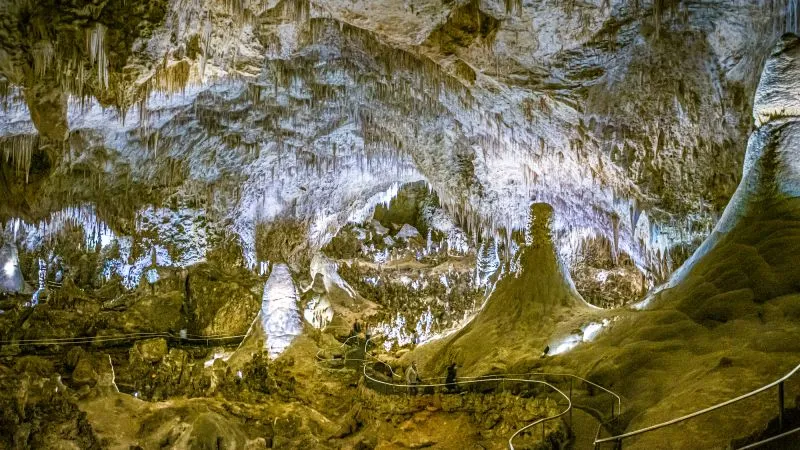Plain water is the only thing visitors are allowed to consume inside the huge cavern at Carlsbad Caverns National Park in New Mexico. Cheetos are a no-go, and the recent park visitor who dropped a bag full of them created a “huge impact” on the cave’s ecosystem, the park said Friday in a Facebook post.
“At the scale of human perspective, a spilled snack bag may seem trivial, but to the life of the cave it can be world changing,” the park said in its post about the garbage found off-trail in the Big Room.
“The processed corn, softened by the humidity of the cave, formed the perfect environment to host microbial life and fungi. Cave crickets, mites, spiders and flies soon organize into a temporary food web, dispersing the nutrients to the surrounding cave and formations. Molds spread higher up the nearby surfaces, fruit, die and stink. And the cycle continues.”
The park said rangers spent 20 minutes carefully removing molds and foreign debris from surfaces inside the cave, noting that while some members of the ecosystem that rose from the snacks were cave-dwellers “many of the microbial life and molds are not.”



It reminds me of the time someone dropped a camera on a skull in the ATM cave in Belize. https://www.7newsbelize.com/sstory.php?nid=22514 People are stupid…
(And for the record, the skull was not fixed when I visited the cave in ~2014, despite what the article said. Hopefully they fixed it after that).
wow, I’d never heard of this before:
Wikipedia has more info:
Sounds amazing. Maybe I’ll look for a good video walkthrough.